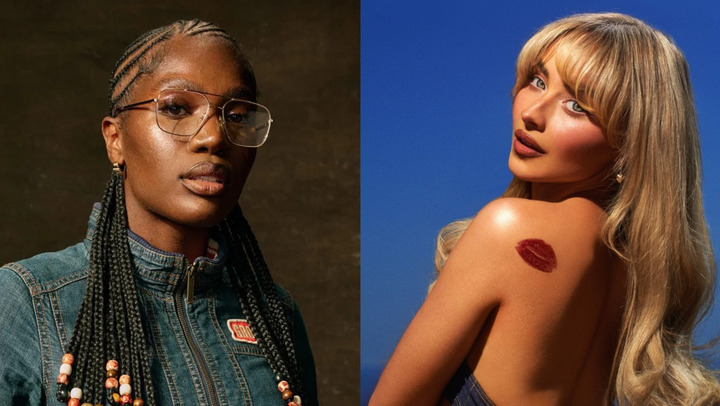When It Rains, It Pours — AG Sully Profile
AG Sully realizes that with pain, and experience, comes growth

AG Sully realizes that with pain, and experience, comes growth
LISTEN: Apple Music | Spotify
Hartselle, Alabama is a small, and conservative, town in northern Alabama. In fact, it was a dry county up until 2016, though not without contention. Those that protect an older way of life, one built upon traditionalism, rallied. The elders, holding picket signs and chanting, “keep Hartselle dry,” outside of the local high school represented the staunch beliefs that enraptured the small town. Despite this opposition, the wet bill passed, signaling a turn in ideology not only for the city but for Ally Burgess, a now Nashville-based singer, as well.
Clamoring to move on from smalltown, Alabama and into the big city, Burgess moved to Nashville for her education, pursuing songwriting, largely on a whim rather than any perceived love for writing in particular. Burgess had no particular experience in songwriting but has always been a creative. Regardless, the idea — singer, songwriter makes it big in Nashville — is a longstanding idea, even subconsciously for most musicians.
Shortly thereafter, Burgess committed to music professionally, adopting her current moniker, AG Sully.
One decision — turning down an opportunity to sing at a megachurch during her freshman year — changed the trajectory of Sully’s career. She would’ve had to move and drop out of school for this opportunity, but the ‘rents found this an unacceptable alternative to an education. However, despite turning down the church, and ultimately dropping school anyway, it wasn’t entirely the end all, be all of her career as a singer. In fact, she still sings in a church on the side.
Faith is both a central and complicated totem upon which AG Sully’s craft relies. While her connection to religion is complicated, admittedly not the unattainable “perfect Christian,” she believes something, rather than any some one, guides her persistently: “It feels conceited to say gift; but, I was given this thing to feel complete, and it’s my job to use it.”
But the key to her artistic nirvana turned out to be secular music, namely Noname’s debut, Telefone, Daniel Caesar, D’angelo, Sampha, Lianne La Havas, and Solange. Being largely influenced by that sultry soul, R&B, and indie production, along with Christian artists like Chris Tomlin, Sully captures the essence of neo-soul music with ease, her range wide and tone equally powerful.
The roar of the big city blared on in the background of our conversation, helicopters and ambulances droned on in the distance where the sun set, and the subtle strum of lofi played over the speakers on the patio of The Blue Room as she recalled the city’s impact on her artistic career. Sully was young when she made the move to the big city, largely accustomed to the sheltered, tight-knit communities Alabama offers in abundance.
Nashville has entrusted Sully with experience, perhaps the most important totem of life, particularly as it relates to music. “I’ve gotten my heart broken, I’ve been really broke. I’ve gotten really screwed over, I’ve screwed people over,” she said. This experience has revealed itself within the lines of her music, particularly as of late, with single “Life is Changing and it’s Changing Me,” encapsulating a Gen Z frame of reference on change.
Sully is committed to her craft, remaining true to herself as she believes that her music has lead her to a comfortable point in life thus far. She refuses to emulate other performers and hoped that her artistic presentation is the most unique thing you see this week. But if her livelihood, depended on it, or as I posed the question, if she had to be signed by tomorrow?
“If I was selling sex, it would be game over,” she said, half-jokingly. Admittedly, sex sells more often than talent, the notion leaving a stringent undertone of disgust in this revelation. The idea of being forced to subscribe to a specific image as a feminine artist to gain attention as it begets talent is both pathetic and begs the question of the impotence of an industry already shrouded in mystery from the outside.
The leg work of the music industry is no longer solely upon talent acquisition — the prerequisites for record deals is less based on talent than it is virality — the ability to blow up; essentially, the audition is a fifteen second video rather than the technical execution and talent of said artist.
“You have to have like 50k followers on TikTok [to be signed to a record deal]. I think that is so lame.” As the industry continues to cut jobs, sign 360 deals, refute royalties, both streaming and masters related, and lean into the heralded “algorithm,” it directly impacts small artist that may not be able to financially commit to music full-time as they work jobs on the side.
They don’t have the time to commit to putting in the hours to bait the algorithm into going viral — it is almost impossible to balance this work with live performance, songwriting, and a full-time job on top. Sully works in a restaurant along with a few other side hustles to keep up financially in a city intent on pushing its most dedicated participants of its downtown culture further from its epicenter.
But still, Nashville’s most prominent artists continue to shine, irrefutably.
Premonition of Rain sees Sully unencumbered with the weight of her distress, rather, the emphasis on progress. “I don’t see myself ever being ‘here’ again,” she said, a candid reminder of the impermanence of superposition. This thinking is further captured on single, “Temporary Space” featuring Nashville’s, Chuck Indigo. The carefulness, the “polish” Sully calls it, of her debut, Space To Think, is removed here, the deep thrum of guitar undercutting a fever pitch of realizations of an ephemeral existence.
Sully looks to take the proverbial next step with the album. Continued growth is front and center for the artist, this album putting a couple years of her life on full display. She is an “up-close” person, one that struggles with setting and staying within boundaries, the struggles of a toxic situationship heavy on the back of her mind. A microscopic listen reveals an artist enveloped in empathy see nature return the favor, slowly, subtlety, but surely.



Comments ()